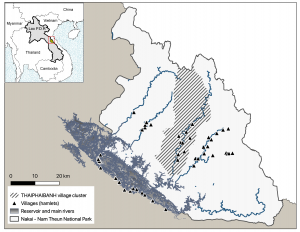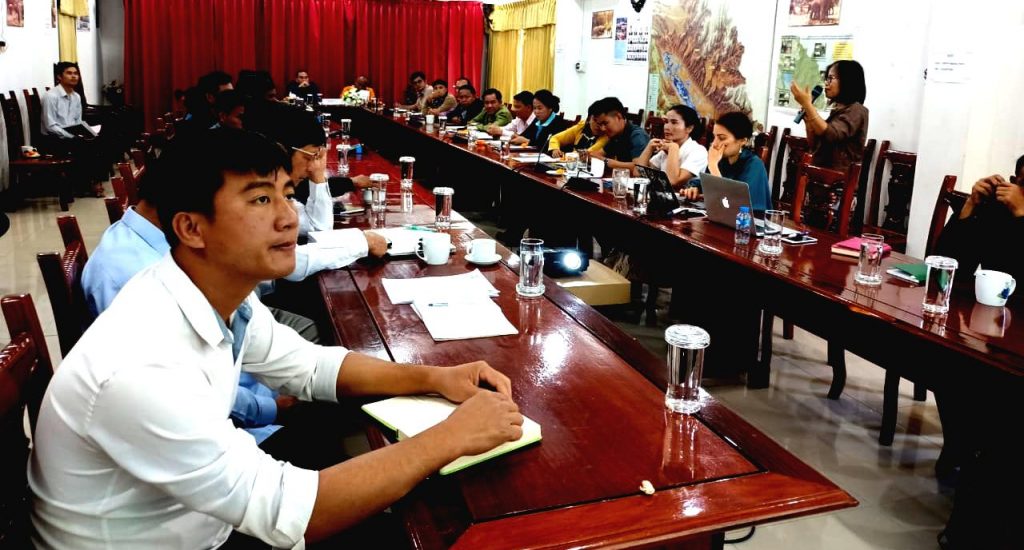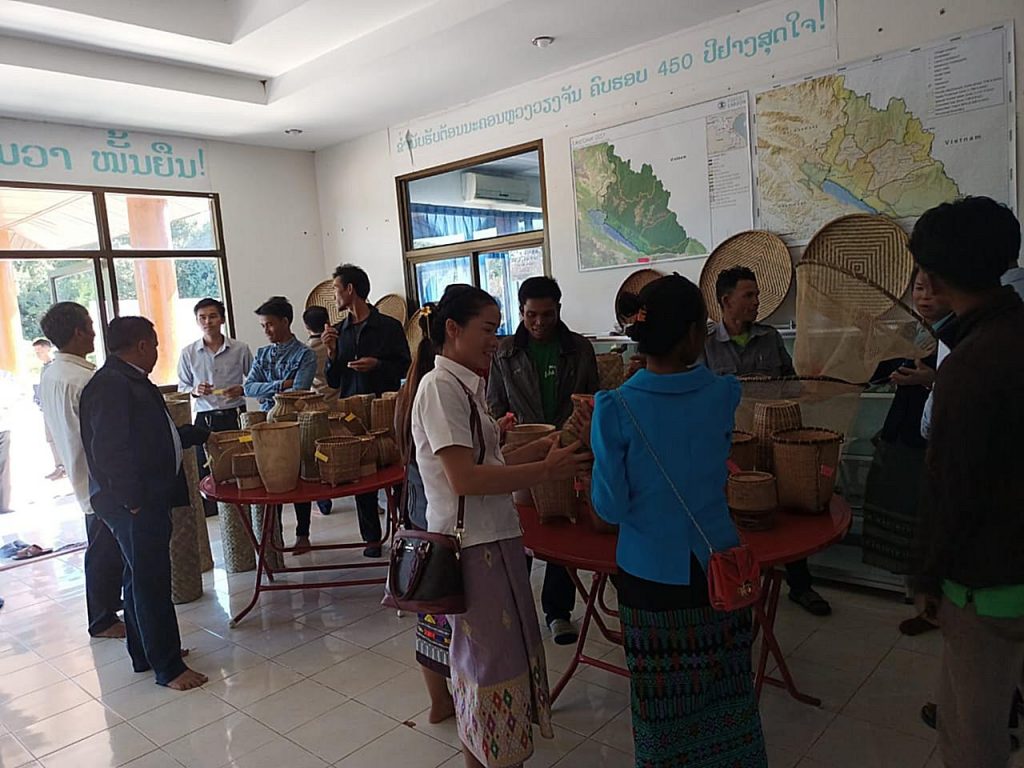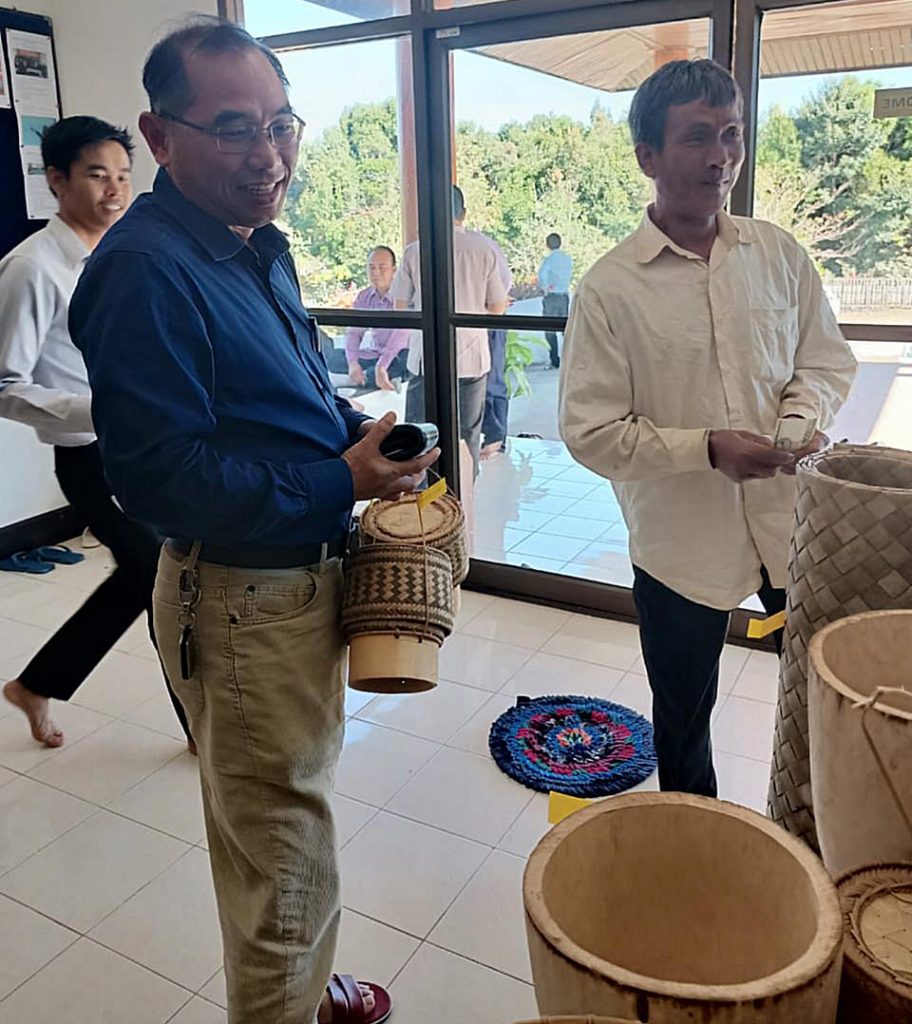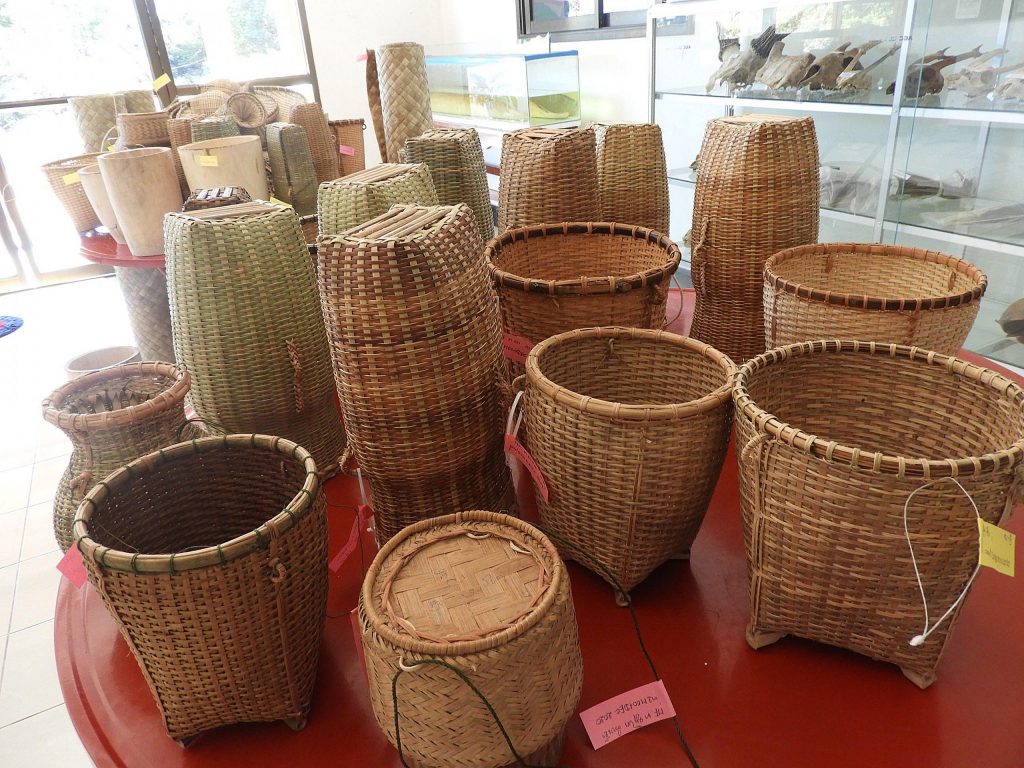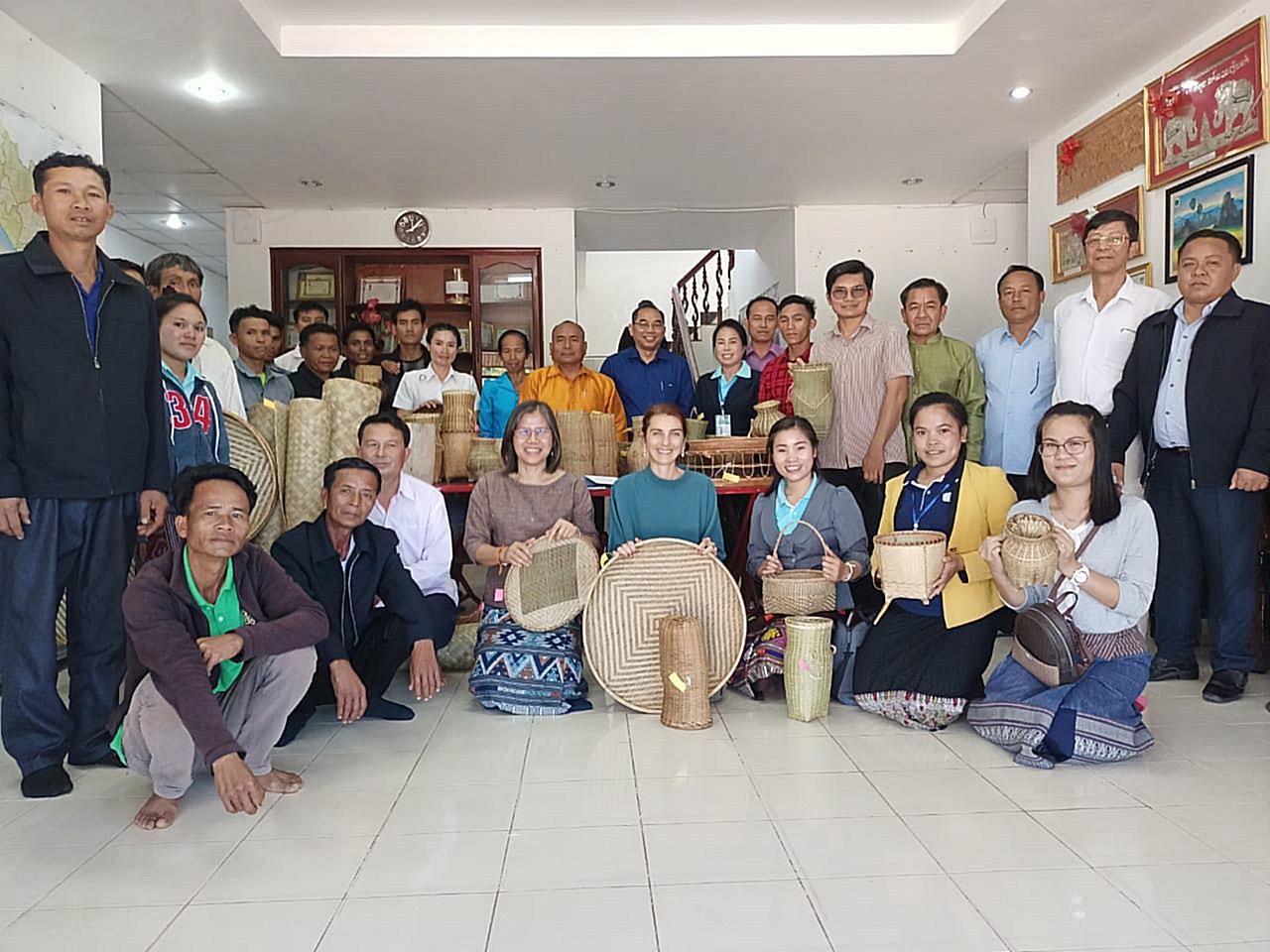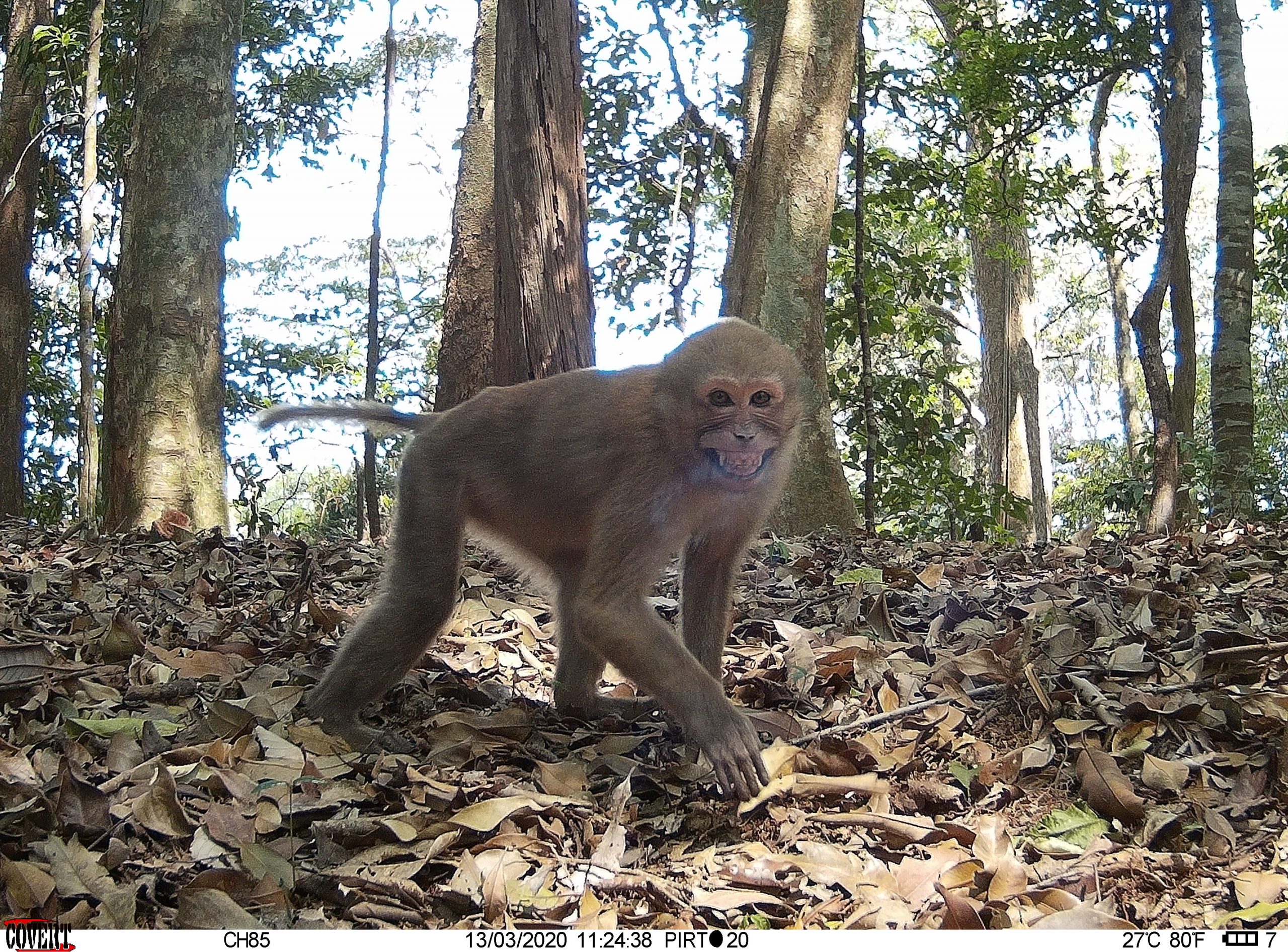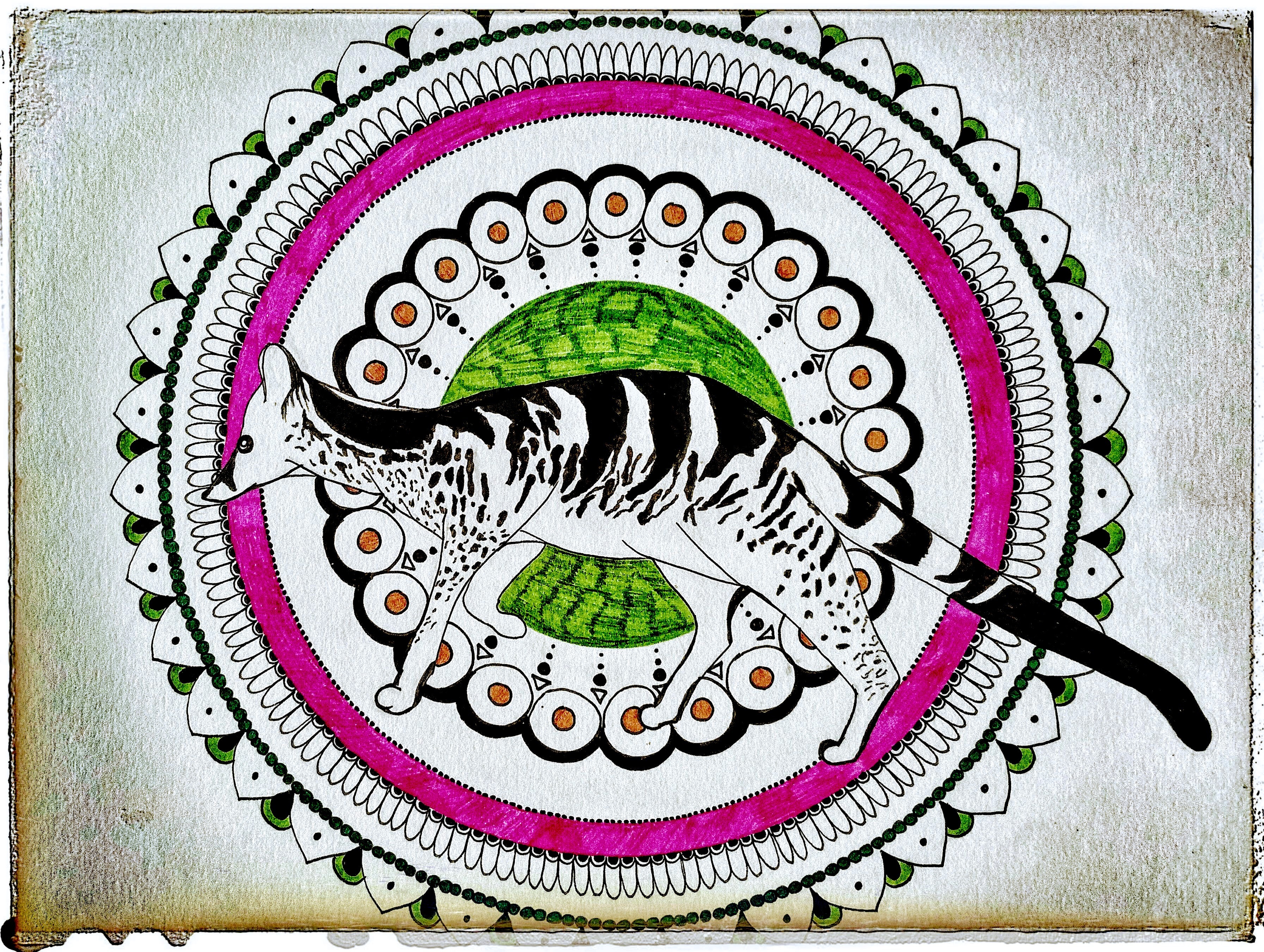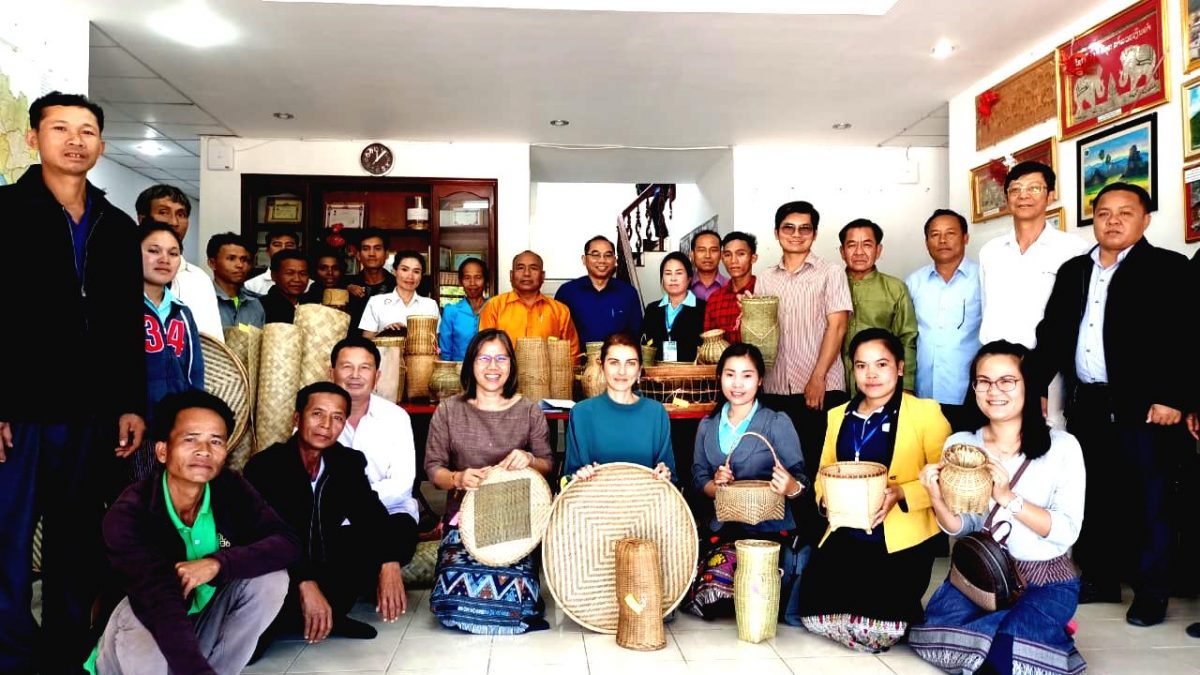
On 15th December 2020, we coordinated the first stakeholder meeting to present and discuss the current progress of our Community Resilience and Biodiversity Conservation in Nakai District Project.
Overall aims of the project:
– Support the local communities in implementing innovative and sustainable approaches to bring alternative incomes as well as value and preserve local traditional craftsmanship and cultural transmission and integrity
– Reduce reliance on natural resources in Nakai-Nam Theun National Park to contribute to biodiversity conservation in the region
We focus on: Village-level marketing and value chain strategy of native Non-Timber Forest Products (NTFPs) and the management of their use by local communities, in Thaiphaibanh village cluster (which includes four villages: Thaiphaibanh, Vangtheunkham, Korbong and Makfuang) in Nakai – Nam Theun National Park.
The meeting brought together all partners from Nakai District that can provide support to the project and the communities. These included the Nakai – Nam Theun National Park Authority, the District Governor Office, the District Office of Industry and Commerce, the District Office of Natural Resources & Environment, the District Office of Agriculture & Forestry, the District Office of Culture & Tourism, the Nakai Plateau Livestock Agriculture and Fisheries Project (NP-LAF), the village chiefs of Thaiphaibanh, Vangtheunkham, Korbong and Makfuang villages, the representative (village facilitators) of Korbong and Makfuang villages (the two pilot villages in the project) and the Anoulak team.
This meeting gave the opportunity for the communities (being represented by their village facilitators) of the two pilot villages (Korbong and Makfuang) to present their project’s Village Action Plan to the audience and discuss their next steps.
A sample of the traditional handicrafts from both pilot villages where prepared specifically for this meeting to present, as well as to initiate marketing of the products with traders and online marketing, in the coming months.
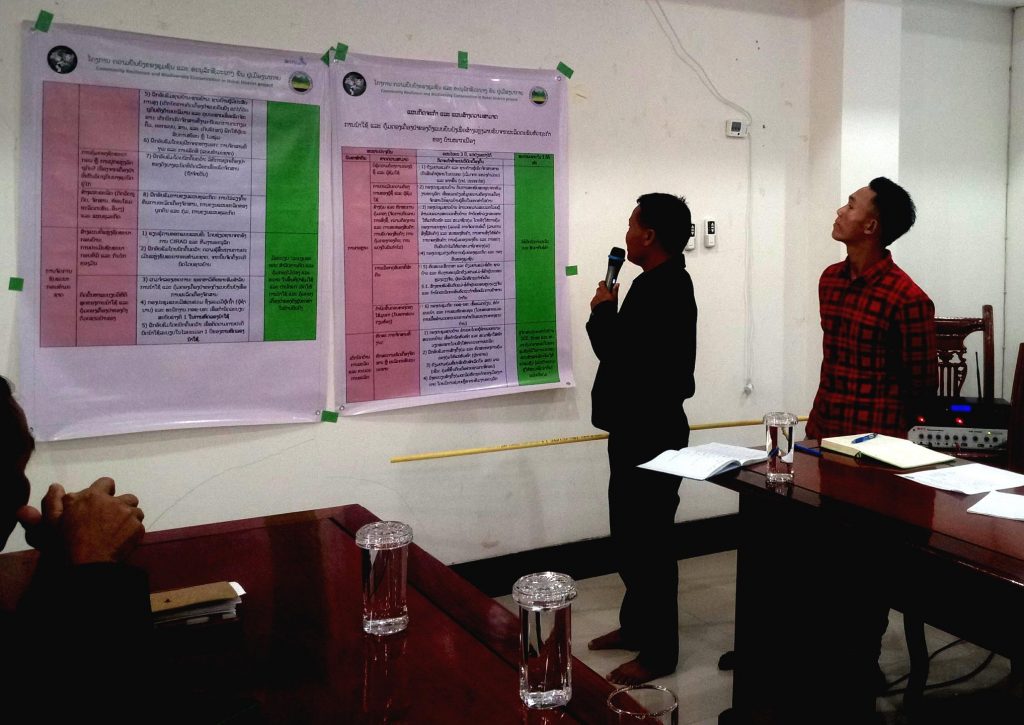
Presentation of Village Action Plans to the audience, by village facilitators from Korbong and Makfuang villages
The presentations and discussions returned a strong consensus of endorsement from all sectors, who recognized and praised the bottom-up approach of the project, and pledged to support the communities in the implementation of their plan.
This meeting concluded the implementation of the first year of this 3-year project (November 2019 to November 2022), which is presented in the short video below:

